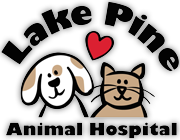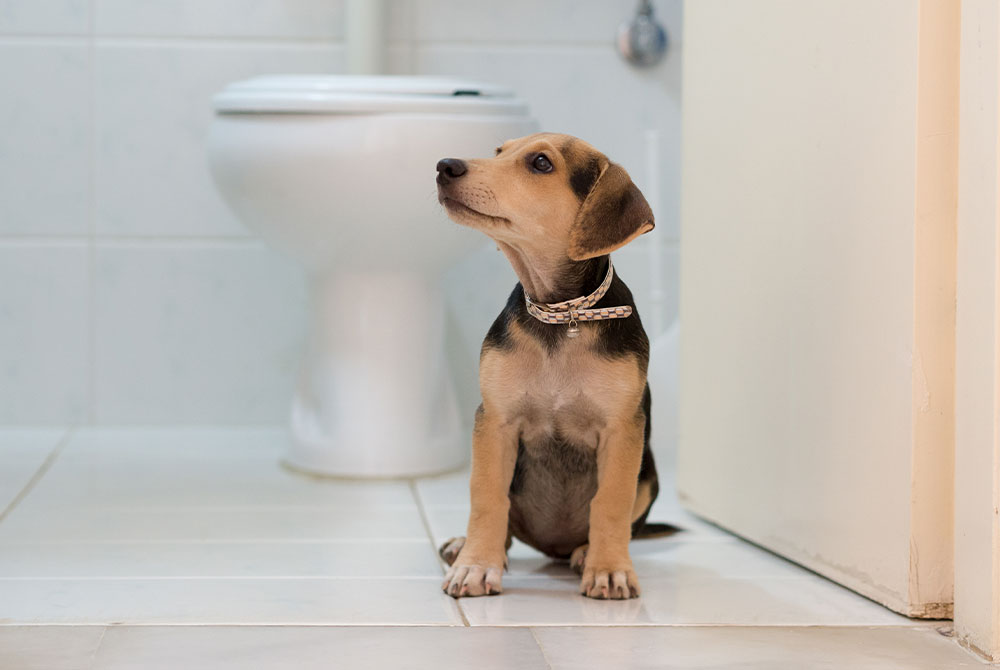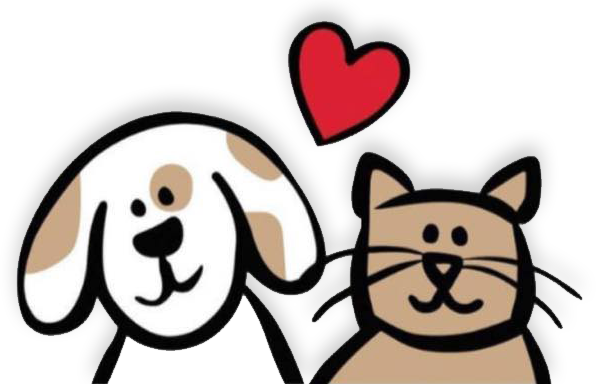Congratulations on the new addition to your family!
Having a dog is a big responsibility, but it’s also one of the most rewarding over a lifetime. We’re here to help
you every step of the way, and we appreciate that you’ve chosen Lake Pine Animal Hospital as your partner
in your pet’s health and well-being. Our team has put together these basics of puppy care to ensure you get
your puppy off on the right paw.
Potty Training Tips
Consistency, supervision, crate training, and sticking to a schedule are key to making housetraining easy!
- Establish a schedule right away! Your dog will need multiple opportunities to go to the bathroom throughout the day. Puppies need to go outside immediately after eating or drinking, playing, first thing in the morning, and after any extended time in the crate.
- Always take your puppy out on a leash. Choose a location to designate a “potty area.” When you get to this area, give your dog his command to “potty”. After the puppy has done his business, he should be praised and given a treat for doing GREAT!!
- When you are in the house, your puppy will need to be supervised until they are completely housetrained or confined to a crate when you aren’t available.
- If you have taken the puppy out to go potty and he has not eliminated, he should return to his crate and be
allowed to return in 10-15 minutes. Repeat this until the puppy has gone to the restroom. - While housetraining, keep in mind that most dogs don’t like to spend time where they have urinated or
defecated. Ensure you have a designated area that is not too close to where they spend most of their time.
REMEMBER: consistency, supervision, crate training, and sticking to a schedule is the key to making housetraining easy!
Crate Training
Crate training is useful for many reasons. It gives puppies a safe space away from the crazy human world, and it can also help with housebreaking. Many dogs prefer a plastic crate’s closed-in, den-like area, but wire crates are easier to move. If you opt for a wire crate, you can put a blanket over it to give this enclosed effect. The crate should be large enough for your puppy to stand, stretch out, and turn around. If your puppy will be a large dog, you’ll need a crate big enough for him when he is an adult. Puppies will eliminate in a crate that is too large, so until he’s housebroken, you’ll want to block off part of the larger “adult” crate.
Crate Training Tips
- Place their crate in a “quiet” area that is free from drafts or direct heat source. Establish a “crate routine” immediately, encouraging your puppy to go in it at regular intervals during the day (their own nap times can guide you) and whenever they must be left alone and unsupervised.
- For bedding, start with a towel that can be easily laundered and not easily destroyed. Fancy beds should wait until they are out of the chewing stage.
- Use a common word or phrase, such as “Kennel”, “crate” or “go to bed” to help establish the routine. Give a special treat or toy that is just used in the kennel so that it is a positive experience to go in.
- Make sure to take them outside last thing every night before being put into the crate and IMMEDIATELY take outside for elimination in the morning.
- After they are fully house-trained and a routine is established, you can simply leave the door open and allow the puppy to come and go as they choose.
Should I Discipline My Puppy?
Every effort should be made to avoid punishment for new puppies as it is generally unnecessary and can lead to avoidance of family members at a time when bonding and attachment is critical. If a reprimand is needed, a verbal “no” or a loud noise is usually enough to distract a puppy so that you can then redirect the puppy to the correct
behavior. Puppies that are supervised with a remote leash can be immediately interrupted with a pull on the leash.
Most importantly, if you find something that your puppy has destroyed but you did not catch him in the act, just clean it up and remember to supervise your puppy better in the future. Do not bring your puppy to the “scene of the crime” and then yell or physically discipline him—you need to punish the behavior you wish to change at the time it occurs. Otherwise, all you are doing is disciplining your puppy for being present when there is a mess on the floor. Since that makes no sense to your puppy, your reprimands could create fear and anxiety, which could lead to aggression and owner avoidance.
919-380-1157 | lakepineanimalhospital.com
1200 Old Raleigh Rd, Apex, NC 27502








Leave A Comment